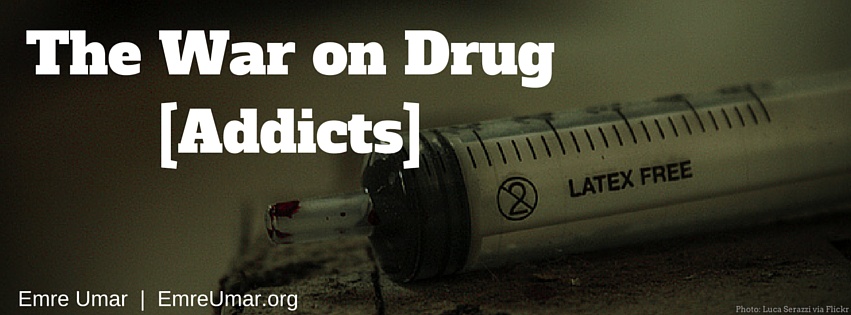In a move closely aligned with the government’s mission to reconfigure the treatment and punishments of those guilty of drug-related crimes, President Obama recently commuted the sentence of 58 prison inmates across the country. Including the recently commuted and those he commuted in May, President Obama has now seen the release of 306 prisoners who had been incarcerated on drug-related crimes since he took office in 2004.
This move comes on the heels of what has been an increasing pressure put on the government–both federal and state–to pull back the reins on the War on Drugs.
The famed War on Drugs has been, in the eyes of many, a failure. The US spends just over $51 billion to fight drug crimes within the states each year according to the Drug Policy Alliance. In 2014, there were almost 1.3 million arrests for simple possession. Often, these people are convicted and spend time in jail. But Obama’s administration has helped to push the federal drug policy towards a reform–not incarceration–based system.
Though there is little debate among educated researchers on the harmful effects of drugs like cocaine or heroin, Obama’s new policy has vowed to focus more strongly on treating drug addicts not as felons in need of imprisonment, but mental-health sufferers in need of rehabilitation.
The Huffington Post did a piece touching on a specific system of reform program that seems to be seen popping up around the country. These programs aim to effectively eliminate prison sentences for nonviolent drug offenders (drug offenders make up roughly 50 percent of the US’s prison population, according to statistics released by the Federal Bureau of Prisons). Instead, those who would formerly have been thrown into jail cells for their addictions are instead given the opportunity to be referred to a case manager. From there, the case manager works with the addict to better him or herself over time through any means necessary.
More and more treatment methods of this kind are beginning to appear around the country after the successes seen in the initial trials.
As Obama’s time in the White House is nearing a close, the President seems intent on leaving behind a legacy more pointed towards a relaxed stance on drug crime. He has pushed for policies regarding justice reform for non-violent drug dealers during his tenure in office, something that has seemingly fallen by the wayside in the midst of the 2016 President election season.
So what does this mean for prisons in the future? Right now, it’s hard to say exactly what the future of drug-related incarceration will look like. Though the Obama administration has consistently pushed the idea of rehabilitation, not all of those in positions of political power agree.
One aspect that President Obama attacked in particular was the idea of mandatory drug sentencing that stems from days of inequality and prevalent racism. Though some disagree with his stance, the fact remains that President Obama and his administration are working adamantly towards pushing America into a more forward-thinking, rehabilitation-first mindset.

